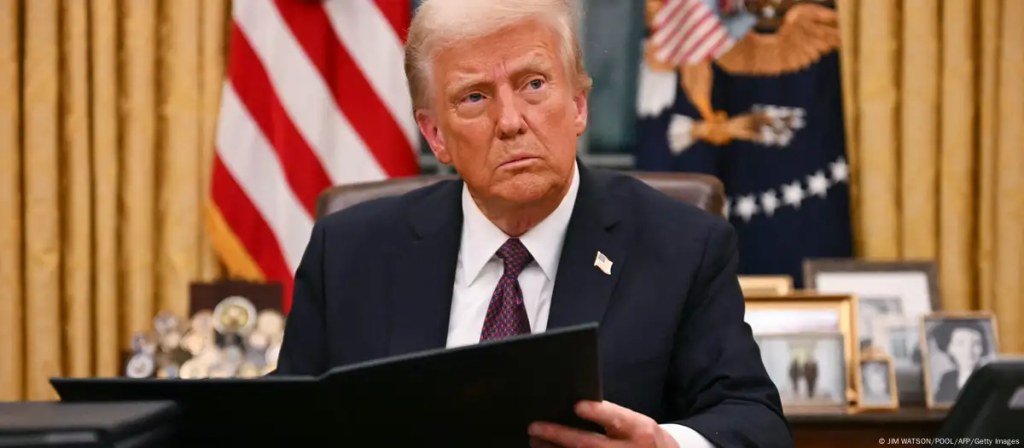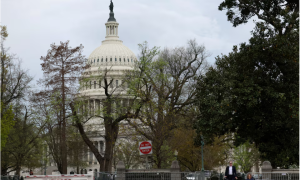A new executive order grants Trump appointees authority over all US federal research funding. Critics say the order is an authoritarian assault on science.

The US position as a global leader in science has long hinged on its research freedom and independence from political interference. A new executive order signed by US President Donald Trump on August 7 now threatens to overturn this paradigm.
The executive order, titled “Improving Oversight of Federal Grantmaking“, grants political appointees sweeping authority over all federal grant funding.
If implemented, political appointees — not scientists — would take control over decisions about research grants. It would, among other changes, allow political appointees to overrule advice from scientists on award decisions, and let them terminate ongoing grants based on political criteria.
Scientists and research advocates have slammed the executive order, saying it enhances Trump’s control over scientific research and universities. They warn it will replace scientific merit with ideological loyalty to the Trump administration.
Victor Ambros, who won the 2024 Nobel Prize for Physiology or Medicine for the discovery of microRNA, called the order “unpatriotic in the extreme.”
“[The order is] a shameless, full-bore Soviet-style politicization of American science that will smother what until now has been the world’s preeminent scientific enterprise. Until this administration, the single overarching priority for public funding of research has been scientific excellence. That is why our country has been so successful in delivering life-saving and life-enriching discoveries,” Ambros said in a statement.
Trump wants political oversight of research
In the last decade, the US Congress awarded ~$200 billion (€172 billion) in research grants annually to advance critical research on diseases, new technologies like AI and life-saving medicines.
US-based researchers have applied for research grants from federal science agencies like the National Science Foundation (NSF) and National Institutes of Health (NIH).
Whether scientists are awarded grants they’ve applied for depends on independent peer review. Panels of experts evaluate research proposals based on evidence, methodology and potential impact.
The August 7 executive order changes that. Peer review from scientific experts is now only advisory — final grant-making decisions have been placed in the hands of political appointees. Those appointees can refuse to fund new grants that don’t align with Donald Trump’s political agenda.
“[Funding] awards must, where applicable, demonstrably advance the President’s policy priorities,” the paper states.
The order cites critical race theory, transgender sexual education programs and Diversity, Equity, and Inclusion (DEI) research as “far-left initiatives” that are an “offensive waste of tax dollars.”
Trump is making US ‘a hostile place for researchers’
This executive order is the latest attack on scientific research and US universities by the Trump administration.
“Much of this executive order is predicated on misinformation,” Jeremy Berg, a former director of the National Institute of General Medical Sciences at NIH and member of Stand Up For Science’s advisory board, said in a statement.
Trump froze all US federal science funding in February and has cut top science roles at NASA.
Funding has also been cut in climate science , gender-related topics and research on potentially life-saving mRNA vaccine technologies.
Kenneth Evans, an expert in science and technology public policy at Rice University in Texas told DW in February that the Trump administration has made the US “a hostile place for researchers.”
What does this mean for US research integrity?
Medical associations warn that the President’s ongoing assault on science is derailing the US’ reputation as a scientific powerhouse and crippling vital research.
“Grant review by political appointees will further impede the work of the scientific community to provide solutions and fight public health threats,” said American Society for Microbiology CEO Stefano Bertuzzi.
“With strong and responsible oversight, we need to harness — not suppress — all perspectives and approaches in the effort to solve these problems,” said Bertuzzi in a statement.
Given that the executive order faces such strong criticism, it will almost certainly also face legal challenges. Opponents are likely to argue that the order violates safeguards designed to keep scientific research free from political oversight.
Reposted from Deutsche Welle

